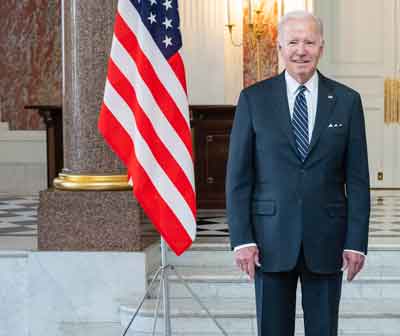The Energy Transition Is a Delusion Indeed
Benjamin Zycher
 The “energy transition” continues to receive thunderous applause from all the usual Beltway suspects, an exercise in groupthink fantasy amazing to behold. For those with actual lives to live and thus uninterested in silliness: The “energy transition” is a massive shift, wholly artificial and politicized, from conventional energy inexpensive (Table 1b and here), reliable, and very clean given the proper policy environment, toward such unconventional energy technologies as wind and solar power. They are expensive, unreliable, and deeply problematic environmentally in terms of toxic metal pollution, wildlife destruction, land use massive and unsightly, emissions of conventional pollutants, and in a larger context large and inexorable reductions in aggregate wealth and thus the social willingness to invest in environmental protection. The “energy transition” continues to receive thunderous applause from all the usual Beltway suspects, an exercise in groupthink fantasy amazing to behold. For those with actual lives to live and thus uninterested in silliness: The “energy transition” is a massive shift, wholly artificial and politicized, from conventional energy inexpensive (Table 1b and here), reliable, and very clean given the proper policy environment, toward such unconventional energy technologies as wind and solar power. They are expensive, unreliable, and deeply problematic environmentally in terms of toxic metal pollution, wildlife destruction, land use massive and unsightly, emissions of conventional pollutants, and in a larger context large and inexorable reductions in aggregate wealth and thus the social willingness to invest in environmental protection.
But the Beltway being what it is, the fantasists are impervious to reality, until the massive costs and dislocations and absurdities become impossible to ignore. (Witness, for example, California.) Even as they backtrack on their confident assertions that a modern economy can be powered with the energy equivalent of pixie dust, they argue that the emerging problems are little more than growing pains attendant upon short run rigidities, and all will be well given some more time, more subsidies, and more magical thinking.
Uh, no. The obstacles confronting the “energy transition” are fundamental — they are caused by the very nature of unconventional energy — driven by massive costs, technical and engineering realities, severe constraints in terms of needed physical inputs, and at a political level growing local opposition to the unconventional energy facilities central to the “transition.”
These realities — there’s that word again — are discussed in detail in a major recent paper by Mark P. Mills of the Manhattan Institute. This brief discussion cannot do it justice, but let us first quote Mills directly:
In these circumstances, policymakers are beginning to grasp the enormous difficulty of replacing even a mere 10% share of global hydrocarbons—the share supplied by Russia—never mind the impossibility of trying to replace all of society’s use of hydrocarbons with solar, wind, and battery (SWB) technologies. Two decades of aspirational policies and trillions of dollars in spending, most of it on SWB tech, have not yielded an “energy transition” that eliminates hydrocarbons. Regardless of climate-inspired motivations, it is a dangerous delusion to believe that spending yet more, and more quickly, will do so. The lessons of the recent decade make it clear that SWB technologies cannot be surged in times of need, are neither inherently “clean” nor even independent of hydrocarbons, and are not cheap.
Mills makes a number of hard realities clear, among which are the following:
-
The realities of the physics, engineering, and economics of energy systems are independent of any beliefs about climate change.
-
Europe, the U.S. and Canada, Australia and the other regions that have pursued power grids with a higher share of wind and solar electricity uniformly have experienced large increases in electricity costs, and even that effect hides the costs of the massive subsidies borne by taxpayers.
-
It costs at least $30 to store the energy equivalent of one barrel of oil using lithium batteries, which explains why batteries cannot compensate for the unreliable nature of wind and solar power even for days, let alone weeks. “There is no physics, never mind engineering or economies of scale” that would overcome this cost disadvantage.
-
The time cost alone of recharging an electric vehicle makes such vehicles uncompetitive, even apart from the costs of the batteries and other problems.
-
The International Energy Agency estimates that only a partial energy transition would require increases in the supplies of lithium, graphite, nickel, and rare earths by 4,200%, 2,500%, 1,900%, and 700%, respectively, by 2040. This staggering problem of materials is “inherent in the nature of SWB technologies,” which means that the cost of unconventional energy will rise even more.
Nonetheless, the delusions continue. Mr. Amos Hochstein, an official at the Department of State, testified before a Senate committee recently that “The imperative [is] to diversify away from Russian energy dependence while accelerating the clean energy transition,” and that “The most effective way to reduce demand for Russian fossil fuels is to reduce dependence on all fossil fuels.”
Got that? Were the Europeans to reduce their dependence upon unreliable deliveries of Russian natural gas, and increase their dependence upon unconventional energy even more unreliable, there will result an increase in European “energy security.” Wow.
This is utter delusion, as Mills demonstrates incontrovertibly. But the Beltway continues in its imitation of George Orwell’s world, in which “War Is Peace, Freedom Is Slavery, and Ignorance Is Strength.” The “energy transition” translation: “Expensive Energy Is Cheap, Environmentally Destructive Energy Is Clean, and Central Planning Will Yield Utopia.” Only fools can believe such things. Much of the Beltway believes them.

Benjamin Zycher is a senior fellow at the American Enterprise Institute.
realclearwire.com
|


